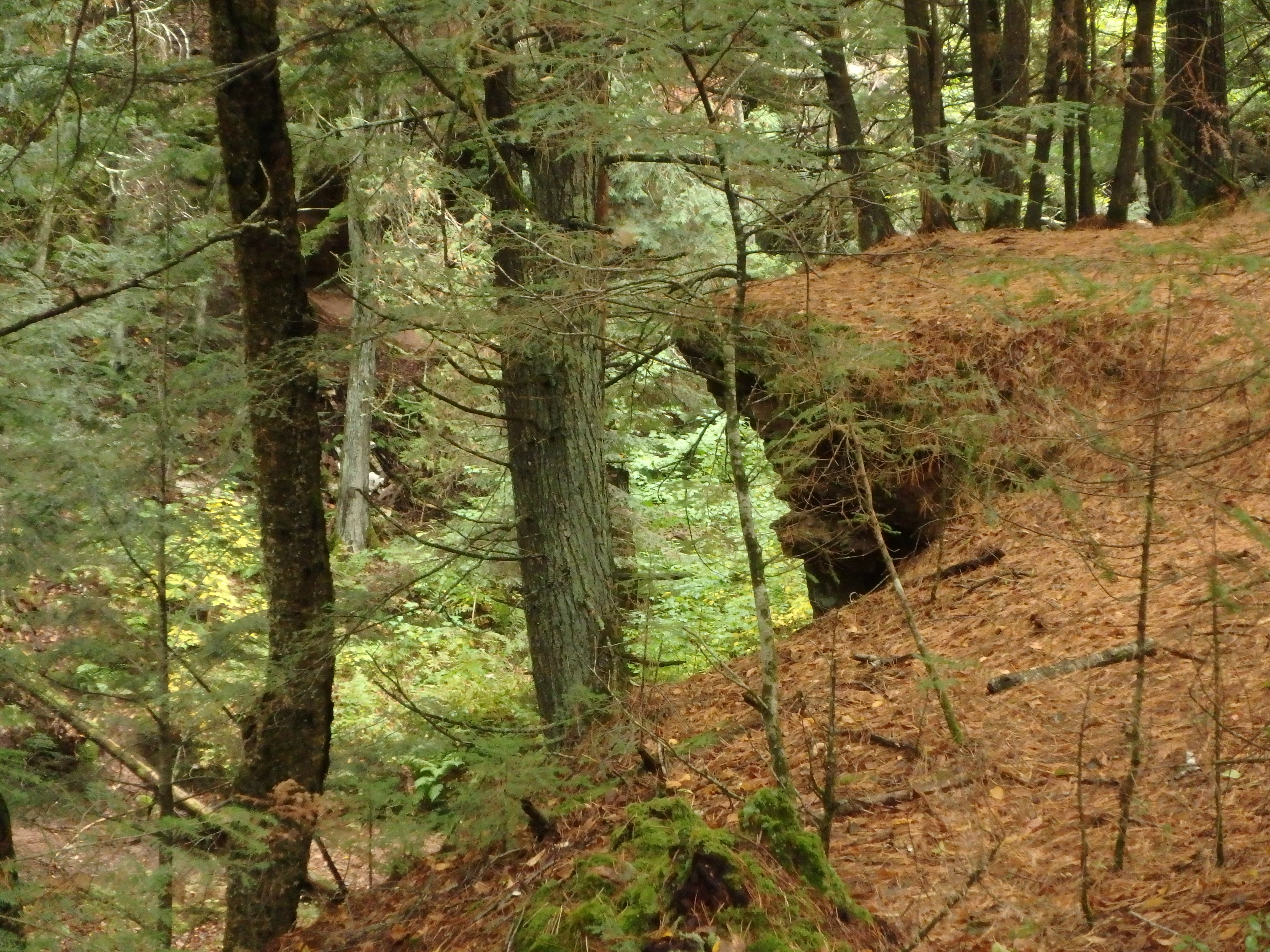OCTOBER 5, 2019 – Yesterday my wife and I hiked through a boreal forest in northern Wisconsin to a precipice overlooking Lake Superior. Along the way I wondered how long I’d survive in those woods—or any northern woods—if I were equipped only with tools of early humans. Not long, I guessed.
Maybe I’d catch some fish but only if my imaginary starter-kit included a net or line and hooks; but how to get out on the frigid waters? How to start a fire—rub two sticks together for a day and a half? Maybe I could harvest enough blackberries to stave off starvation long enough for me to figure stuff out.
Even if I could figure out short-term survival, what about January in these parts? I’d have to head south before . . . Winter Cometh. Easier said, however, than to walk (in what for footwear?) through forests primeval, over rivers, around lakes and lowlands, all the while scavenging for food and trying to avoid becoming food for a wild beast.
But then I caught myself. I would not have evolved or existed alone. I’d be part of a band of people who had inherited a set of skills and knowledge from their ancestors; how to hunt, how to scavenge; how to survive so close to the earth. Life would be hard, cruel, and unforgiving, but one way or another human life would succeed—in fact, it did succeed—in enough ways and places to allow the species to perpetuate and expand to 7.2 billion souls on earth. And that number despite constant warfare, widespread disease, and catastrophes of all sorts, “natural” and “man-made.”
Not far from our walk through paradise to Lake Superior was a plaque along an exposed trail just outside the little town of Washburn. The sign gave some history of the area—with photos to show the result of a very big, very bad idea: cutting down all the trees. I read about the lumber barons who bought up enormous tracks of land and sent armies of sawyers out to fell every tree in sight to meet insatiable building demands elsewhere in the country. The men who razed America’s Amazon thought the timber—the source of so much lucre—would last forever. It didn’t.
As it turns out, generations past, like ours, were poor stewards of the earth. One difference, though, is they had yet to produce, consume and throw plastic to the winds—and the waters; or to manufacture and distribute automobiles on a mass scale; or make, ship, sell, use, and discard a million other things; or . . . to become 7.2 billion strong.
What occurred to me, as I pondered poor stewardship, was the irony in how we must now respond. To save ourselves, we must reconsider how early humankind survived and succeeded—not alone in the woods, one soul against the elements, but as part of greater humanity, moving together back from the precipice to a more hospitable arrangement with our host, mother earth.
(Remember to subscribe to this blog and receive notifications of new posts by email.)
© 2019 Eric Nilsson
